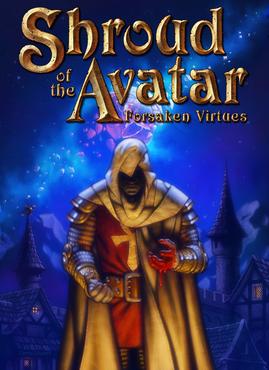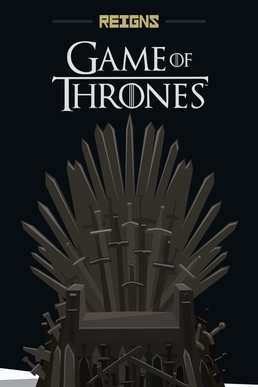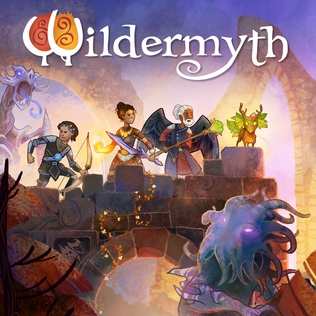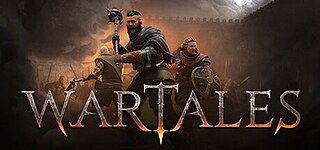A programming game is a video game that incorporates elements of computer programming, enabling the player to direct otherwise autonomous units within the game to follow commands in a domain-specific programming language, often represented as a visual language to simplify the programming metaphor. Programming games broadly fall into two areas: single-player games where the programming elements either make up part of or the whole of a puzzle game, and multiplayer games where the player's automated program is pitted against other players' programs.

The Movies is a business simulation game created by Lionhead Studios for Microsoft Windows and ported to Mac OS X by Feral Interactive. Players run a Hollywood film studio, creating films that can be exported from the game. The Movies was released in November 2005 to positive reviews and several awards, but sold poorly. An expansion, The Movies: Stunts & Effects, was released in 2006.

A video game with nonlinear gameplay presents players with challenges that can be completed in a number of different sequences. Each player may take on only some of the challenges possible, and the same challenges may be played in a different order. Conversely, a video game with linear gameplay will confront a player with a fixed sequence of challenges: every player faces every challenge and has to overcome them in the same order.

Life simulation games form a subgenre of simulation video games in which the player lives or controls one or more virtual characters. Such a game can revolve around "individuals and relationships, or it could be a simulation of an ecosystem". Other terms include artificial life game and simulated life game (SLG).
Dwarf Fortress is a construction and management simulation and roguelike indie video game created by Bay 12 Games. Available as freeware and in development since 2002, its first alpha version was released in 2006 and received attention for being a two-member project surviving solely on donations.

Yume Nikki is a 2004 adventure game created by the pseudonymous Japanese developer Kikiyama. The player controls a girl named Madotsuki and explores her dreams, collecting 24 effects that change her appearance and equipment. Random events also occur throughout the game in the form of cutscenes and unique gameplay sequences. The game was developed using RPG Maker 2003 without a traditional plot or battle system. Gameplay instead focuses on exploration of the dream world.

Kerbal Space Program (KSP) is a space flight simulation video game developed by Mexican studio Squad for Linux, macOS, Windows, PlayStation 4, PlayStation 5, Xbox Series X/S and Xbox One. In the game, players direct the space program of a species of green humanoid aliens known as "Kerbals". The game features a pseudorealistic orbital physics engine, allowing for various real-life orbital maneuvers such as Hohmann transfer orbits and orbital rendezvous.

Europa Universalis IV is a 2013 grand strategy video game in the Europa Universalis series, developed by Paradox Development Studio and published by Paradox Interactive as a sequel to Europa Universalis III (2007). The game was released on 13 August 2013 for Windows, OS X, and Linux. It is a strategy game where players can control a nation leading up to and during the early modern period - from the Late Middle Ages following the Battle of Varna (1444), the final crusade, to the Napoleonic era with the timeline finishing on 2 January 1821 to coincide with the death of Napoleon on 5 May 1821. Players navigate their nations with conducting trade, administration, diplomacy, colonization, and warfare.

The Sims 4 is a social simulation game developed by Maxis and published by Electronic Arts. The game was released on September 2, 2014 for Windows, and is the fourth main installment in The Sims series, following The Sims 3 (2009). As with previous games in the series, The Sims 4 allows players to create and customize characters called "Sims", build and furnish their homes, and simulate their daily life across various in-game regions. This installment introduced a newly developed custom game engine, with enhanced character creation and house-building tools, along with a more complex in-game simulation.

Shroud of the Avatar: Forsaken Virtues is a fantasy role-playing video game. Described as being a spiritual successor to the Ultima series, Shroud of the Avatar was developed by Austin, Texas-based developer Portalarium, with a team led by Richard Garriott as creative director, Starr Long as executive producer, Chris Spears as lead technical designer, and Tracy Hickman as lead story designer. It is currently maintained by Catnip Games.

Cities: Skylines is a 2015 city-building game developed by Colossal Order and published by Paradox Interactive. The game is a single-player open-ended city-building simulation. Players engage in urban planning by controlling zoning, road placement, taxation, public services, and public transportation of an area. They also work to manage various elements of the city, including its budget, health, employment, traffic, and pollution levels. It is also possible to maintain a city in a sandbox mode, which provides more creative freedom for the player.
RimWorld is a construction and management simulation video game developed by Canadian game designer Tynan Sylvester and published by Ludeon Studios. Originally called Eclipse Colony, it was initially released as a Kickstarter crowdfunding project in early access for Microsoft Windows, macOS, and Linux in November 2013, and was released on October 17, 2018. The game was released for PlayStation 4 and Xbox One as RimWorld Console Edition on July 29, 2022, with development and publishing being handled by Double Eleven. Rather than a test of skill or a challenge, the game is intended to serve as an AI-powered "story generator", where the game is used as the medium for players to experience narrative adventures.

Stellaris is a 4X grand strategy video game developed by Paradox Development Studio and published by Paradox Interactive. The game is highly inspired by the works of Stanisław Lem and contains numerous references to his works.

Slay the Spire is a 2019 roguelike deck-building game developed by the American indie studio Mega Crit and published by Humble Bundle. The game was released in early access for Microsoft Windows, macOS, and Linux in late 2017, with an official release in January 2019. It was released for PlayStation 4 in May 2019, for Nintendo Switch in June 2019 and for Xbox One in August 2019. An iOS version was released in June 2020, with an Android version released in February 2021.

Reigns: Game of Thrones is a 2018 strategy game developed by Nerial and published by Devolver Digital. The third instalment in and a spin-off from the Reigns series, it is based on the television series Game of Thrones. Reigns: Game of Thrones was released in October 2018 for Android, iOS, Linux, macOS, and Microsoft Windows. A version for Nintendo Switch was released in April 2019.

Hyborian War is a play-by-mail game published by Reality Simulations, Inc. It takes place during the Hyborian Age in the world of Conan the Barbarian created by Robert E. Howard. The game has been continuously available for worldwide play since its inception in 1985 and has changed little in its overall format. It uses a computer program to adjudicate player orders. Although it relies on postal mail or email and has turnaround times which are relatively long for the digital age of video games, Hyborian War has remained active into the 21st century.
A roguelike deck-building game is a hybrid genre of video games that combines the nature of deck-building card games with procedural-generated randomness from roguelike games.

Wildermyth is a tactical role-playing video game developed and published by Worldwalker Games. First released in 2019, the game was released in full in June 2021 for Linux, macOS, and Windows, and is set to be released for Nintendo Switch, PlayStation 4, PlayStation 5, Xbox One, and Xbox Series X/S in October 2024. The game received generally positive reviews upon release, with praise mostly directed at the game's use of procedural generation for storytelling.

Wartales is a tactical role-playing game developed by Shiro Games and published by Shiro Unlimited in 2023. Players manage a mercenary band as it attempts to survive in a low fantasy world that is trying to recover from a plague.
Cobalt Core is a sci-fi roguelike deck-building game released in November 2023 for Nintendo Switch and Windows, developed by Rocket Rat Games and published by Brace Yourself Games. It follows a group of anthropomorphic animals trapped in a time loop, fighting various enemy spacecrafts in an attempt to discover the origin of the loop and escape it.














